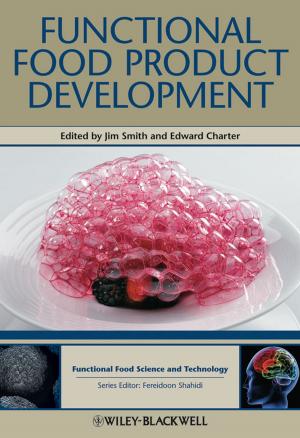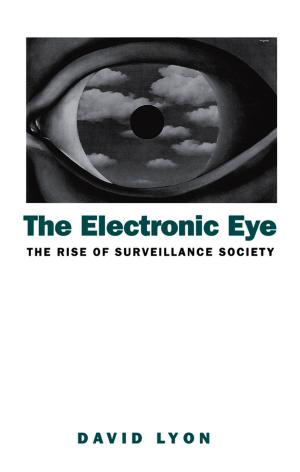Molecular Techniques in Food Biology
Safety, Biotechnology, Authenticity and Traceability
Nonfiction, Science & Nature, Technology, Food Industry & Science| Author: | ISBN: | 9781119374619 | |
| Publisher: | Wiley | Publication: | January 2, 2018 |
| Imprint: | Wiley | Language: | English |
| Author: | |
| ISBN: | 9781119374619 |
| Publisher: | Wiley |
| Publication: | January 2, 2018 |
| Imprint: | Wiley |
| Language: | English |
Molecular Techniques in Food Biology: Safety, Biotechnology, Authenticity & Traceability explores all aspects of microbe-food interactions, especially as they pertain to food safety. Traditional morphological, physiological, and biochemical techniques for the detection, differentiation, and identification of microorganisms have severe limitations. As an alternative, many of those responsible for monitoring food safety are turning to molecular tools for identifying foodborne microorganisms. This book reviews the latest molecular techniques for detecting, identifying, and tracing microorganisms in food, addressing both good foodborne microbes, such as those used for fermentation and in probiotics, and harmful ones responsible for foodborne illness and food quality control problems.
Molecular Techniques in Food Biology: Safety, Biotechnology, Authenticity & Traceability brings together contributions by leading international authorities in food biology from academe, industry, and government. Chapters cover food microbiology, food mycology, biochemistry, microbial ecology, food biotechnology and bio-processing, food authenticity, food origin traceability, and food science and technology. Throughout, special emphasis is placed on novel molecular techniques relevant to food biology research and for monitoring and assessing food safety and quality.
- Brings together contributions from scientists at the leading edge of the revolution in molecular food biology
- Explores how molecular techniques can satisfy the dire need to deepen our understanding of how microbial communities develop in foods of all types and in all forms
- Covers all aspects of food safety and hygiene, microbial ecology, food biotechnology and bio-processing, food authenticity, food origin traceability, and more
- Fills a yawning gap in the world literature on food traceability using molecular techniques
This book is an important working resource for professionals in agricultural, food science, biomedicine, and government involved in food regulation and safety. It is also an excellent reference for advanced students in agriculture, food science and food technology, biochemistry, microbiology, and biotechnology, as well as academic researchers in those fields.
Molecular Techniques in Food Biology: Safety, Biotechnology, Authenticity & Traceability explores all aspects of microbe-food interactions, especially as they pertain to food safety. Traditional morphological, physiological, and biochemical techniques for the detection, differentiation, and identification of microorganisms have severe limitations. As an alternative, many of those responsible for monitoring food safety are turning to molecular tools for identifying foodborne microorganisms. This book reviews the latest molecular techniques for detecting, identifying, and tracing microorganisms in food, addressing both good foodborne microbes, such as those used for fermentation and in probiotics, and harmful ones responsible for foodborne illness and food quality control problems.
Molecular Techniques in Food Biology: Safety, Biotechnology, Authenticity & Traceability brings together contributions by leading international authorities in food biology from academe, industry, and government. Chapters cover food microbiology, food mycology, biochemistry, microbial ecology, food biotechnology and bio-processing, food authenticity, food origin traceability, and food science and technology. Throughout, special emphasis is placed on novel molecular techniques relevant to food biology research and for monitoring and assessing food safety and quality.
- Brings together contributions from scientists at the leading edge of the revolution in molecular food biology
- Explores how molecular techniques can satisfy the dire need to deepen our understanding of how microbial communities develop in foods of all types and in all forms
- Covers all aspects of food safety and hygiene, microbial ecology, food biotechnology and bio-processing, food authenticity, food origin traceability, and more
- Fills a yawning gap in the world literature on food traceability using molecular techniques
This book is an important working resource for professionals in agricultural, food science, biomedicine, and government involved in food regulation and safety. It is also an excellent reference for advanced students in agriculture, food science and food technology, biochemistry, microbiology, and biotechnology, as well as academic researchers in those fields.















